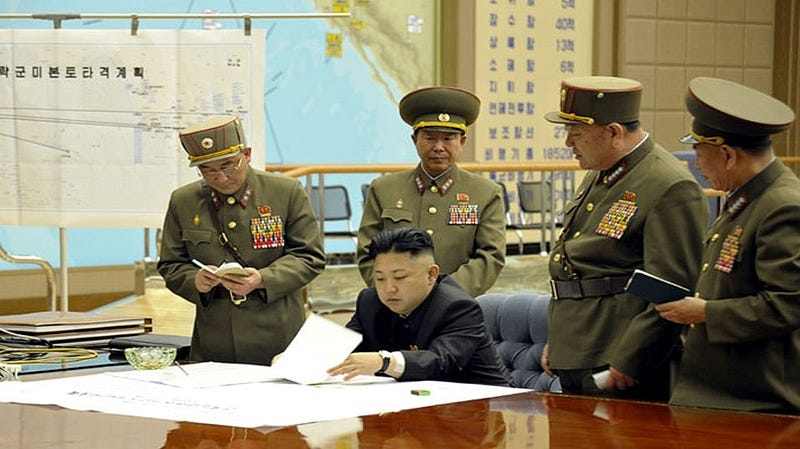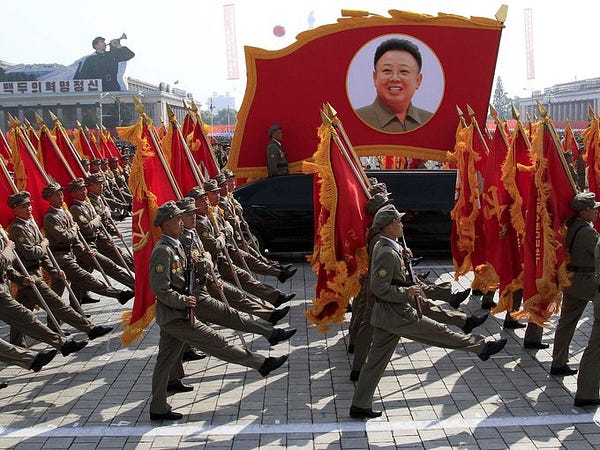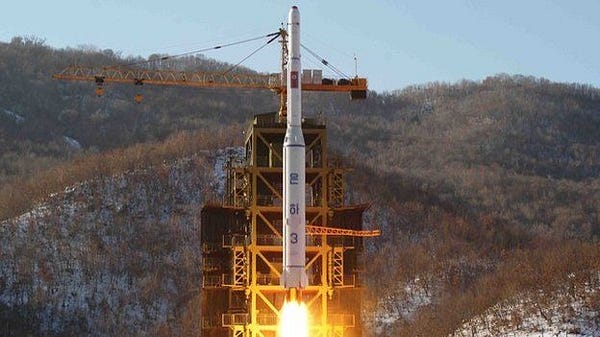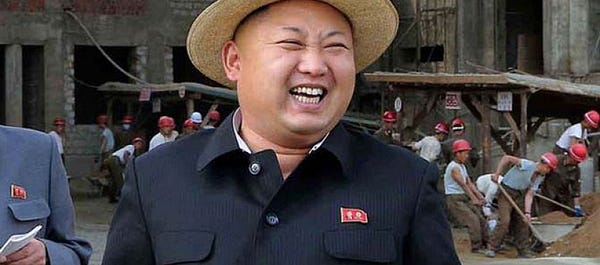What does North Korea want from America ?

Ah, North Korea. Just when you forgot that the reclusive dictatorship existed, it’s back in the headlines after another productive month of saber-rattling. Over the past few weeks, Kim Jong-Un’s regime has sentenced an American tourist to 15 years of hard labor, test-launched a long-range missile, and threatened, for the umpteenth time, to drop nuclear weapons on the United States and South Korea. So what gives? Why are they doing this? Would they really start a war?
To understand just what is going through the minds of the leadership of the Hermit Kingdom — as North Korea is popularly known — it helps to take a look at what the powers-that-be in Pyongyang want. And the answer is surprisingly clear: North Korea wants to maintain its government. Like many of the strongmen of yore, Kim Jong-Un’s primary goal is merely to stay in power. Everything he does fits, somehow, into that grand design.
North Korea wants to preserve its government. Like many of the strongmen of yore, Kim Jong-Un’s primary goal is merely to stay in power. Everything he does fits, somehow, into that grand design.
The first takeaway from that strategic aim is that no, an all-out armed conflict on the Korean Peninsula is but a remote possibility. For all the fuss that North Korea kicks up, its leaders aren’t stupid. They know that their poorly-trained soldiers, equipped with outdated weapons and vehicles, would be no match for the tactically- and technologically-superior US military — and hence are not going to, in their right minds, start a war.
Meanwhile, Pyongyang also seeks to prevent a war from being started against it — and that’s where its nuclear program comes into the picture. The development of atomic weaponry has been a pet project of North Korea’s rulers for decades now, and it too goes toward the country’s drive for self-preservation, designed to deter any American invasion. After the US toppled like-minded dictators Saddam Hussein in Iraq and Muammar Qaddafi in Libya, in the eyes of the Kims, they were next, and scrambled to develop the only thing they could think of that might give Washington pause — the Bomb. So, by maintaining a modest nuclear arsenal that could, theoretically, be dropped on the US, the North Korean regime ensures its external security — but that still doesn’t explain the offensive threat-mongering.
Pyongyang also seeks to prevent a war from being started against it — and that’s where its nuclear program comes into the picture.
Well, equally important to Kim Jong-Un’s long-term survival as despot is preventing internal unrest. While Pyongyang may seem like a unified front with Kim as its leader, it’s not, and behind the scenes, there’s a bevy of generals, bureaucrats, and other officials jockeying for power. And there’s no better way for Kim to consolidate his power and stave off a potential palace coup from disgruntled elites who view him as entitled and inexperienced than by orchestrating an international standoff and getting the US to the negotiating table. There, he can try to extract some piecemeal concessions in exchange for backing down and releasing foreign prisoners.
While Pyongyang may seem like a unified front with Kim as its leader, it’s not, and behind the scenes, there’s a bevy of generals, bureaucrats, and other officials jockeying for power.
Ultimately, Kim Jong-Un does want to improve on the status quo, and likely plans to follow the model of next-door China by bringing in some element of free enterprise to try and jumpstart his stagnant country—after all, the North Korean budget today is made up largely of Chinese and Russian loans, some small tax revenues, and the proceeds from organized crime that the government partakes in abroad. In order to make the kind of investments he wants to in his economy and military to ensure the long-term viability of his family’s dynasty, Kim needs international legitimacy and relief from western sanctions that he can only get through crisis-induced diplomacy.
As a whole, what North Korea seeks is simple — existence. But the means to that end are anything but clear. Total war is unlikely, but neither is total peace — if history is any guide, Pyongyang will be a thorn in the west’s side for generations to come.


